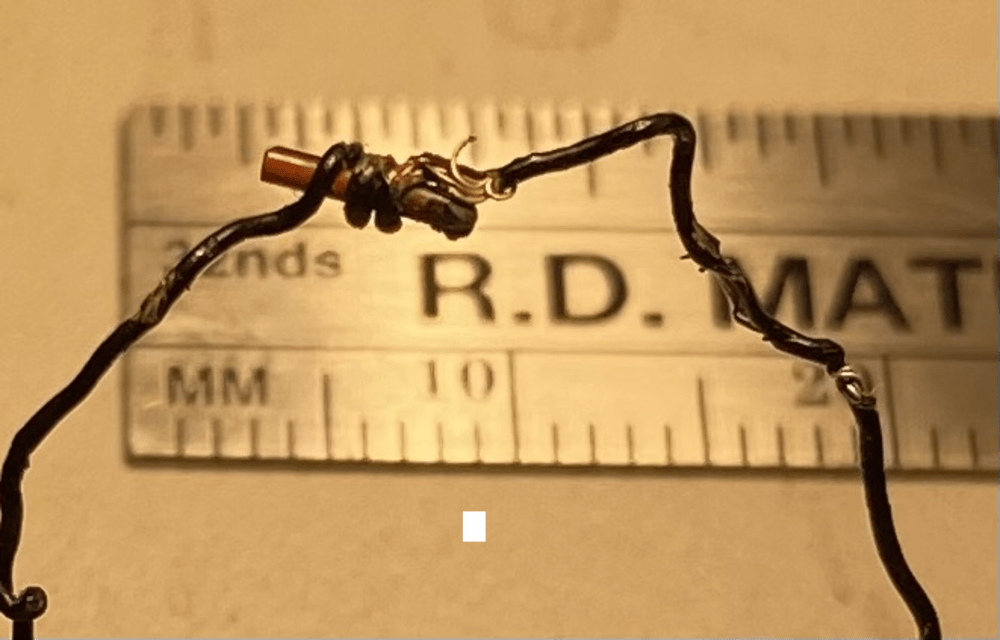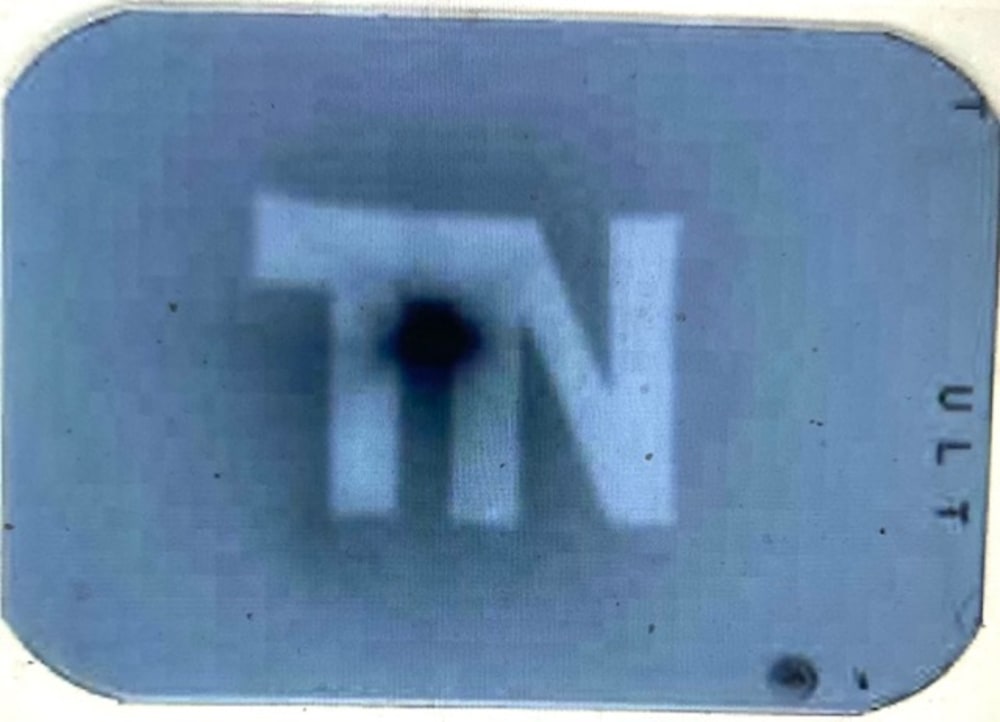For some modern-days applications (as microrobotic [1,2]) there is a need for compact power sources. We suggest a novel approach based on smart low-symmetry materials. They can generate DC and pulsed high voltage without any electronics with versatile power supplies (sunlight, laser, heat/cold, mechanical stress). Pulsed mode of high-voltage generation can be controlled or can be done in self- pulsing regime. Pulsed mode can be remotely activated by pulsed laser or modulated sunlight. Self- pulsing mode may transform CW laser light or CW incoherent illumination (as sunlight) into short (msec-microsecond) high-voltage pulses. We have achieved transformation of solar light and CW laser illumination into optical and electrical pulsation using pyroelectric crystal and crystal fiber
Fig.1 Example of small lithium-niobate crystal cylindrical fiber (0.5mm x 1.0cm) with inductive pick-up of electrical pulses induced by light illumination or heating- cooling.
Placed in modest vacuum this power source can be used as compact crystal accelerator Unique property of using this crystal accelerator as electron beam source is generation of self-focused electron beam that can produce X-rays from the metal targets. The unique property of using this crystal accelerator as electron beam source is generation of self-focused electron beam without additional beam-control elements. Fig.2 illustrates ability of DC/pulsed generator application for X-ray imaging.
Fig.2 X-ray imaging of metal letters TN made by DC/pulsed generator based on LN crystal. Central black spot illustrates self-focusing of electron beam emitted from crystal during heating/cooling (pyroelectric mode of operation)
Illumination of single sample by natural or concentrated Sun-light or CWlaserlight (green or blue, ` 100 – 300 mW) resulted in synchronic generation of the optical (~ms range) and electrical pulses ( several kV, micro second/ns range).When array of samples was illuminated by laser or incoherent light (including Sun light) electrical pulsation were synchronized in time in a similar way as behave pulsed-coupled oscillators (PCO) known in physics and biology and micro-robotic[1-3]. Several possible mechanisms of pulsations are discussed: photogalvanic (bulk photovoltaic effect BPE}, pyroelectric, local polarization domains reversal, triple-point plasma M ecton explosions [4], birefringent periodic patterns formation. In pyroelectric mode of operation (heating/cooling) optical pulses were due to pyroelectric luminescence. Hybrid mode of energy conversion with triboelectric effect was tested. Applications for energy conversion, microrobotic, MEMS, disinfection, pulsed optical tweezing [5], photo-electrophoresis and dielectrophoresis are considered.
References
- Chen Z, Anglea T, Zhang Y, Wang Y. Optimal synchronization in pulse-coupled oscillator networks
using reinforcement learning. PNAS Nexus. 2023 - Barciś A, Bettstetter C. 2020. Sandsbots: robots that sync and swarm. IEEE
- Wang Z, Wang Y. 2018. Pulse-coupled oscillators resilient to stealthy attacks.
- G.A. Mesyats, Ectons and their role in plasma processes, 2005 Plasma Phys. Control. Fusion 47 A109DOI 10.1088/0741-3335/47/5A/010
- N. Kukhtarev, T. Kukhtareva, M. Edwards, J. Jones, M. Bayssie, J. Wang, S.. Lyuksyutov and M.Reagan, Smart photogalvanic running-grating interferometer, JAP, 97, 054301 (2005).
Like this entry?
-
About the Entrant
- Name:Nickolai Kukhtarev
- Type of entry:teamTeam members:
- Nickolai Kukhtarev
- Tatiana Kukhtareva
- Profession:
- Number of times previously entering contest:1
- Patent status:none





